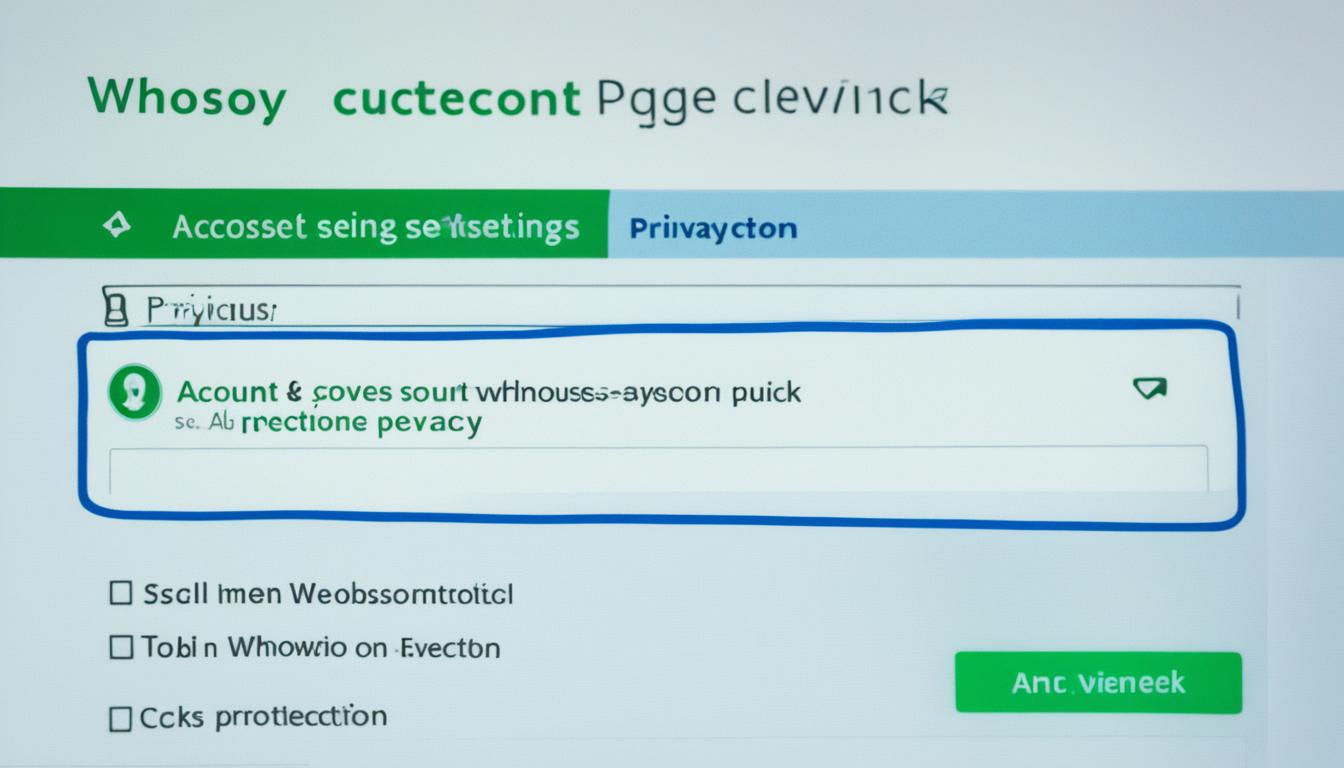What is a domain registrar and what are its responsibilities?
The domain registrar industry is responsible for managing over 350 million domain names worldwide.1 From the registration process to ensuring compliance with industry standards, domain registrars play a vital role in the functioning of the internet. In this article, we will explore what a domain registrar is, delve into their responsibilities, and understand how they contribute to the seamless operation of the online world.
Key Takeaways:
- A domain registrar facilitates the process of registering and managing domain names.
- The responsibilities of a domain registrar include adhering to ICANN policies and maintaining accurate WHOIS data.
- Compliance with ICANN’s Registrar Compliance Program is essential for domain registrars.
- A domain registrar works by coordinating with domain registries to offer a wide range of domain extensions.
- When choosing a domain registrar, consider factors such as one-stop shop services and available domain extensions.
Now, let’s dive into the world of domain registrars and gain a deeper understanding of their role in the online ecosystem.
1
Source: Verisign – Domain Name Services Fast Facts
What is a Domain Registrar?
A domain registrar is a company or entity that assists individuals and businesses in purchasing and managing domain names for their websites. A domain name is the web address that users enter into their browsers to access a website. It is a crucial component of building an online presence. When someone wants to obtain a domain name for their website, they need to register it with a domain registrar. The domain registrar simplifies the process of purchasing and managing domain names, ensuring that users can have a unique and personalized web address for their websites.
Registering a domain name through a domain registrar is the first step in establishing a website. Once the domain name is registered, it can be connected to a website hosting provider, allowing users to create and publish their website on the internet. Without the services of a domain registrar, it would be challenging for individuals and businesses to secure and manage their desired domain names.
Responsibilities of a Domain Registrar
As a domain registrar, I have several important responsibilities that are outlined by ICANN, the governing body for domain names. These responsibilities play a crucial role in maintaining the integrity and functionality of the domain registration process.
- Adhering to ICANN Consensus Policies: I must comply with various ICANN policies, such as the Inter-Registrar Transfer Policy and the Uniform Domain Name Dispute Resolution Policy. These policies ensure fair and transparent processes for domain transfers and resolving disputes.
- Updating and Populating WHOIS Data: I am responsible for keeping the WHOIS database up to date with accurate registration information. This includes promptly updating any changes to contact details and ensuring that WHOIS data remains publicly accessible.
- Submitting Registration Information to Registries: When a domain name is registered through my services, I am required to submit the necessary information to the relevant domain registries. This ensures that the registered domain becomes active and functional.
- Requiring Registration Agreements: I enforce registration agreements that contain specific provisions to protect the interests of both the registrant and the registrar. These agreements outline the terms and conditions of using the registered domain name.
- Investigating Reported Inaccurate Contact Information: It is crucial to maintain the accuracy of contact information associated with registered domain names. In cases where inaccurate information is reported, I am responsible for investigating and rectifying the issue promptly.
By fulfilling these responsibilities, I strive to provide a high standard of service and ensure transparency in all domain name-related matters. As a domain registrar, I play a vital role in facilitating the registration and management of domain names, allowing individuals and businesses to establish their online presence with ease.

Domain Registrar Compliance Program
In addition to the regular responsibilities, a domain registrar must also adhere to ICANN’s Registrar Compliance Program. This program ensures that registrars comply with specific standards and regulations to provide a secure and reliable domain registration experience.
One of the key elements of the compliance program is WHOIS management. Registrars are required to offer a free public WHOIS service, allowing anyone to access domain registration information. They are also responsible for promptly updating WHOIS data to ensure its accuracy.
Domain name transfer is another area covered by the compliance program. Registrants should be able to transfer their domain names to other registrars easily and without hassle.
The program also includes policies and standards for domain name renewal. Registrars must provide clear information about renewal options and ensure that a registrant’s domain name is not lost due to unintentional expiration.
Data escrow compliance is an important aspect of the program. Registrars are required to regularly submit copies of their registration data to an escrow agent. This ensures that registrants’ data is securely stored and can be accessed in the event of any issues.
Lastly, a domain registrar must comply with the Uniform Domain Name Dispute Resolution Policy (UDRP). This policy provides a mechanism for resolving disputes related to domain names and trademarks, ensuring fair and objective resolutions.
Adhering to the Registrar Compliance Program demonstrates a registrar’s commitment to maintaining high standards and protecting the interests of domain name registrants.

How a Domain Registrar Works
A domain registrar plays a vital role in the registration and management of domain names. When you want to register a domain name, you can turn to a domain registrar to assist you throughout the process. Here’s how it works:
- Search for available domain names: A domain registrar provides you with tools to search for available domain names. You can input your desired name and check its availability.
- Purchase your domain: Once you find an available domain name, the registrar helps you purchase it. They coordinate with the domain registry, which is responsible for managing and maintaining domain names.
- ICANN accreditation: It’s important to note that a domain registrar must be accredited by ICANN (Internet Corporation for Assigned Names and Numbers) to sell domain names to the public. This accreditation ensures that the registrar follows industry standards and regulations.
- Domain extensions: Not all domain registrars offer the same range of domain extensions. Some specialize in specific extensions, while others provide a wide variety. It’s essential to choose a registrar that offers the extension(s) you need, whether it’s a common extension like .com or a country-specific extension.
By utilizing the services of a domain registrar, you can navigate the registration process smoothly and secure the domain name that best represents your online presence.
| Domain Registrar Features | Benefits |
|---|---|
| User-friendly interface | Simplifies the domain search and registration process |
| Wide range of domain extensions | Allows you to choose the perfect domain extension for your website |
| Competitive pricing | Offers affordable domain registration prices |
| Domain management tools | Enables easy management of DNS settings, domain transfers, and renewals |
| Customer support | Provides assistance and guidance throughout the domain registration process |
Choosing a Domain Registrar
When it comes to selecting a domain registrar, there are several factors to consider in order to make the right choice for your website. Here are some key considerations:
- One-Stop Shop: Some domain registrars operate on a one-stop shop model, offering a range of services beyond domain registration. These services may include hosting, privacy administration, and domain transfers. Opting for a one-stop shop registrar can save you time and effort by consolidating all your website-related needs in one place.
- Domain Name Extensions: It’s important to assess the range of domain name extensions offered by a registrar. While some registrars specialize in specific extensions, such as .com or country-specific domains, others provide a wide variety of options. Consider your specific needs and choose a registrar that offers the extensions relevant to your website.
- Hosting Provider: If you’re in need of hosting services for your website, consider selecting a registrar that also offers hosting. This integration can simplify the website setup process and potentially save you money on domain transfers. Look for registrars that provide reliable and flexible hosting solutions tailored to your website’s requirements.
By considering these factors, you can find a domain registrar that best aligns with your needs and goals, providing an efficient and comprehensive solution for your website’s domain name and hosting requirements.
| Features | One-Stop Shop Registrar | Specialized Registrar |
|---|---|---|
| Domain Registration | ✓ | ✓ |
| Hosting Services | ✓ | ✗ |
| Privacy Administration | ✓ | ✗ |
| Domain Transfers | ✓ | ✗ |
| Range of Domain Extensions | Varied | Specialized |
Choosing a Domain Registrar: FAQs
As you navigate the world of domain registration, you may have some burning questions about domain registrars and how they function. Here are answers to some frequently asked questions:
1. What is the difference between a domain registrar and a domain host?
A domain registrar is responsible for facilitating the registration and management of domain names, while a domain host provides the infrastructure and services to make a website accessible on the internet. Essentially, a domain registrar helps you secure your web address, whereas a domain host allows your website to be seen by visitors.
2. How does DNS relate to domain registrars?
DNS, or Domain Name System, is responsible for translating domain names into IP addresses, enabling websites to be accessed on the internet. When you register a domain name with a domain registrar, you can configure the DNS settings to point your domain to a specific web host or server. This ensures that when someone enters your domain name in their browser, they are directed to the appropriate website.
3. Can I transfer my domain from one registrar to another?
Yes, you have the freedom to transfer your domain from one registrar to another if you’re not satisfied with your current provider. The process typically involves unlocking your domain, obtaining an authorization code or transfer key, and initiating the transfer with your new registrar. Keep in mind that there may be a cost associated with domain transfers, and it’s important to follow the specific steps outlined by your new registrar.
4. What should I consider when choosing a domain registrar?
When selecting a domain registrar, you should consider factors such as pricing, customer support, domain extensions offered, and additional services provided. It’s important to compare costs and features to ensure you’re getting the best value for your money. Additionally, be aware of domain slamming, a deceptive practice where unauthorized registrars send misleading domain transfer notices. Choose a reputable registrar and be cautious of any unexpected or suspicious correspondence.
By understanding the role of a domain registrar, differentiating it from a domain host, grasping the importance of DNS, and being aware of domain transfer considerations, you can confidently navigate the domain registration process and choose a registrar that meets your needs.
FAQ
What is a domain registrar?
What are the responsibilities of a domain registrar?
What is the domain registrar compliance program?
How does a domain registrar work?
What should I consider when choosing a domain registrar?
What are some frequently asked questions about domain registrars?
- SEO for Entry Door Services - April 24, 2025
- Boosting Property Value: Why Halifax Windows and Doors Are a Smart Investment - April 24, 2025
- The Business Cost of Injury: Why Personal Injury Law Matters in a Financial World - April 16, 2025





















Post Comment
You must be logged in to post a comment.